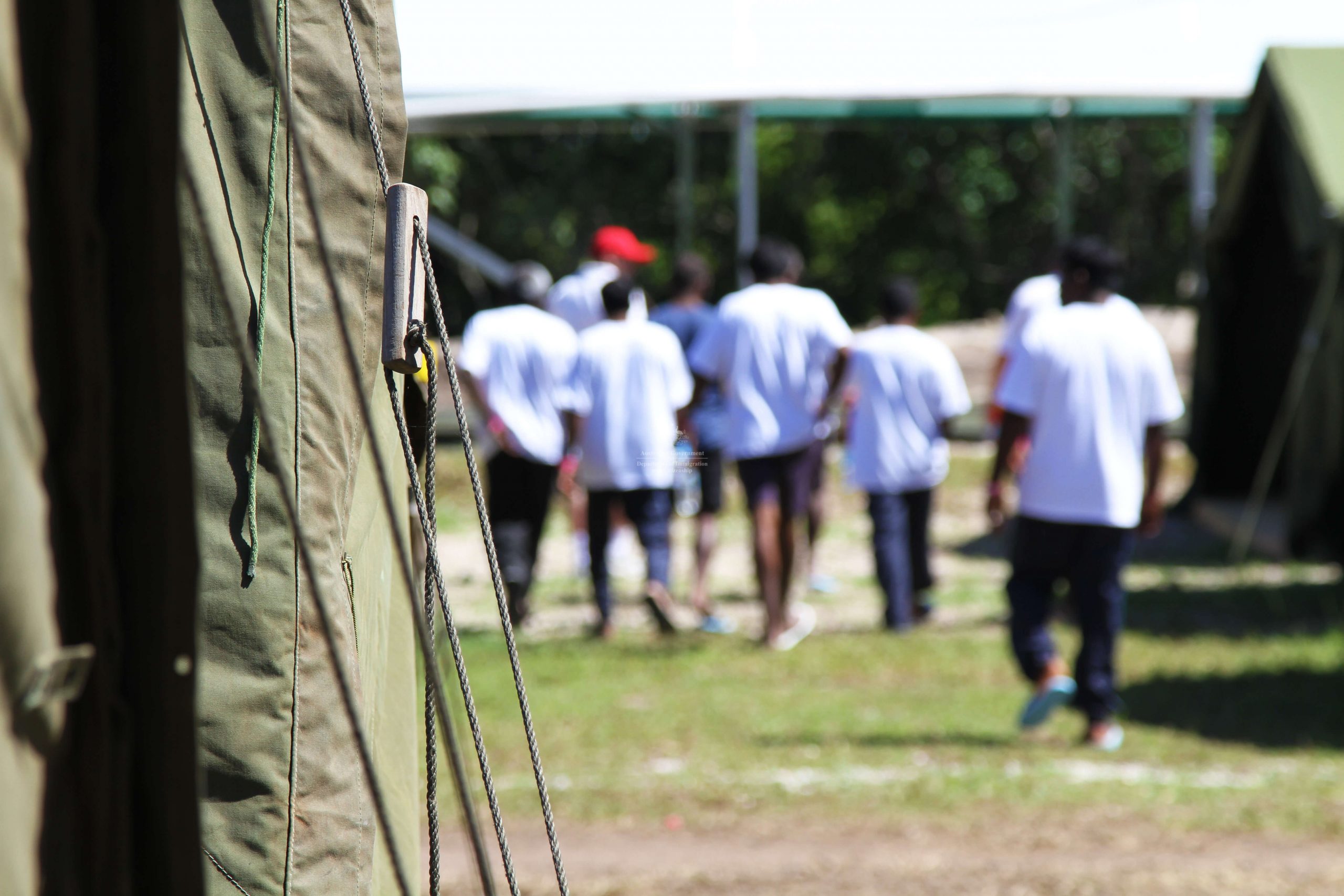New Zealand is unlikely to resettle its full quota of refugees from Nauru under its 2022 agreement with Australia, and faces choices on the future of the pact.
A deal struck by previous governments on both sides of the Tasman agreed New Zealand would take 450 refugees from the detention centre between 2022-2025.
In the first two years of the pact, around 210 people have been approved to settle in New Zealand, and just 172 have done so.
More have been referred to the UNHCR for processing.
The complexity of those cases make it hard to forecast how many more will be eligible for resettlement, and particularly by the end of the deal in June 2025.
Australia has sent asylum seekers to the detention centre on the Micronesian nation for more than a decade, resettling the vast majority in third-party nations.
While the facility was empty last year, Australia has transported a number of asylum seekers to Nauru in recent months.
The Guardian reported last month there are roughly 85 currently being held in detention, with 15 in the community.
Those individuals are ineligible to be resettled in New Zealand under the terms of the 2022 deal, agreed by Jacinda Ardern and Scott Morrison’s governments.
New Zealand’s agreement to accept asylum seekers granted refugee status comes into focus this week with a first Kiwi delegation visiting Nauru in six years.
Deputy Prime Minister Winston Peters landed on the Micronesian nation on Wednesday, bringing a cross-party group of MPs for talks.
The expiring resettlement deal gives rise to the question as to whether New Zealand will extend the pact to resettle the full 450, or end the agreement next June.
Speaking from Solomon Islands ahead of the Nauru visit, Peters struck a frustrated tone.
“It was a commitment made by a former government and what did they do about it?” he said.
“The promise was made by someone else and now you’re asking us to keep their promise.”
Chris Luxon’s new coalition government has not walked away from the deal, but must decide whether to extend the time frame or it will fail to reach the quota.
Australia’s ongoing use of the detention centre and practice of holding asylum seekers in indeterminable incarceration has attracted much criticism.
Peters said New Zealand believed Australia was acting in what it believed to be its national interest.
“Countries have a right to say who may come to their country,” he said.
“Law and order and security of the people in their homes, in their streets and in their businesses, those are fundamental rights.”
Peters also said New Zealand may struggle to resettle additional refugees owing to record inflows of migration after the pandemic.
“Housing infrastructure and everything else we want for refugees are not able to be provided because they weren’t built,” he said.
Peters will have dinner with President David Adeang and several cabinet ministers on Wednesday night before formal bilateral talks and a press conference on Thursday.
The New Zealand delegation’s visit is also notable as it includes two travelling journalists: from Australian Associated Press and Radio NZ.
Last decade, Nauru instituted a prohibitive $8000(US$5,363) fee for a media visa, designed to keep journalists away.
Aside from the 2018 Pacific Islands Forum leaders summit, it is not clear how many journalist visas Nauru has issued in recent years.
Nauru has no non-government media outlets.
Peters said he was pleased Kiwi diplomats had persuaded Nauru to drop the fee to allow for reporting on the island. “You guys are singularly precedent-creators in this modern context,” he said.
